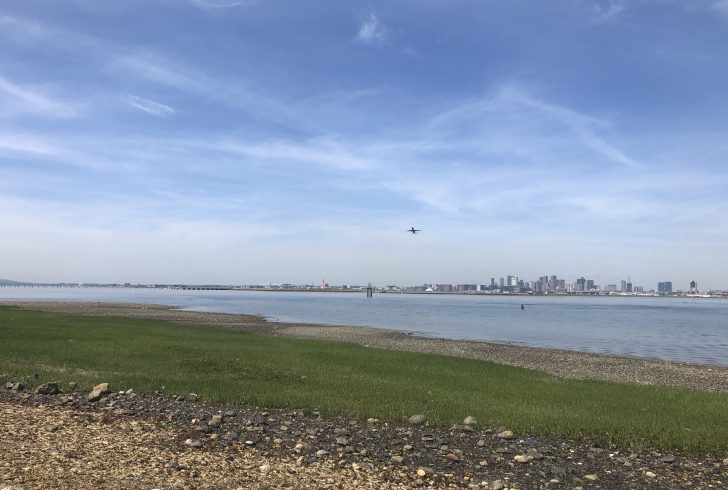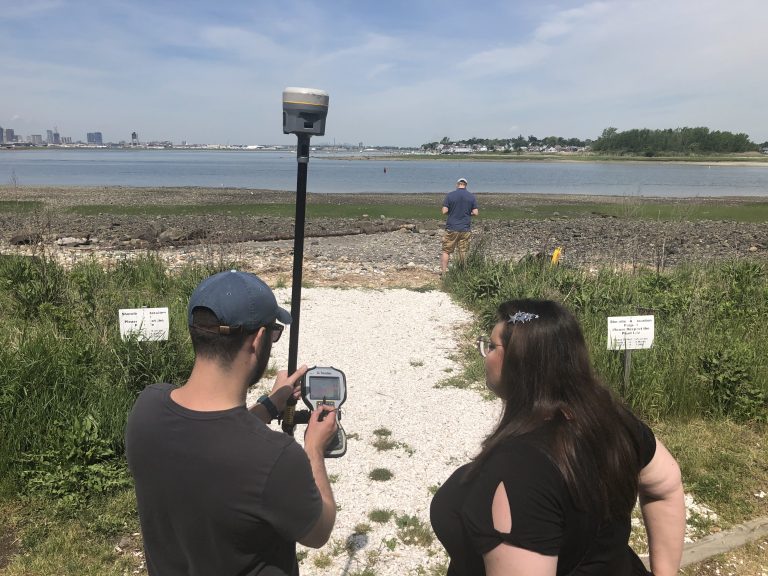Exciting New Research at Coughlin Park in Winthrop!


Walking along the beach, playing a pick-up game of hockey, playing fetch, plane-spotting – you can enjoy all of these activities (and more!) at Coughlin Park, a public park in Winthrop, MA along Boston Harbor. This small park is popular with local families, teens, and retirees alike, and is a wonderful space for everyone to enjoy the ocean. But climate change effects like rising seas and increased erosion are threatening this park. Coughlin Park isn’t just a place to play – it also protects nearby roads and homes from powerful stormy waves.
Coughlin Park has beautiful views of both the Boston skyline and the natural environment.
The Woods Hole Group and the Stone Living Lab are helping make Coughlin Park more resilient to climate change threats. Engineers and restoration ecologists with Woods Hole Group used nature-based solutions like restoring salt marsh grasses and a cobble beach at the park to reduce erosion and break stormy ocean waves.
Now that the construction work is completed, Stone Living Lab researchers have begun a multi-year monitoring project to track the progress of the restoration over time. Professional and community scientists are monitoring the shape of the beach over time, the growth of salt marsh grasses, and identifying what kinds of critters make their home along the beach. Why is this science-based monitoring important? Our partners and researchers want to be sure that the nature based solutions are effective and impactful for the park. Without this science-based approach, we would have no idea if the time, effort, and money put into this work was worthwhile from an ecosystem perspective!

Bryan McCormack and Sara Bistany of UMass Boston using a Real-time kinematic GPS unit (RTK-GPS) unit to collect data that will help create a 3D surface map of the beach!
“What I like about the project,” says Dr. Mark Borrelli, UMass Boston and SLL geomorphologist, “is the Nature-Based Solution is designed to not only protect the park, but will also protect the salt marsh from storm erosion and the salt marsh in turn helps the bank from getting eroded by reducing wave energy! Things get better, when we all play together.”
SLL and Woods Hole Group researchers have been visiting Coughlin Park regularly to collect data, including a local team of community scientists participating in the Lab’s beach profiling project. They’ll continue to monitor the Park for the next four years, sharing their data with the public and the town of Winthrop. You can follow our monitoring work on Facebook, Instagram, and Twitter, find out more about our research here, and find out how YOU can get involved at Coughlin Park here!